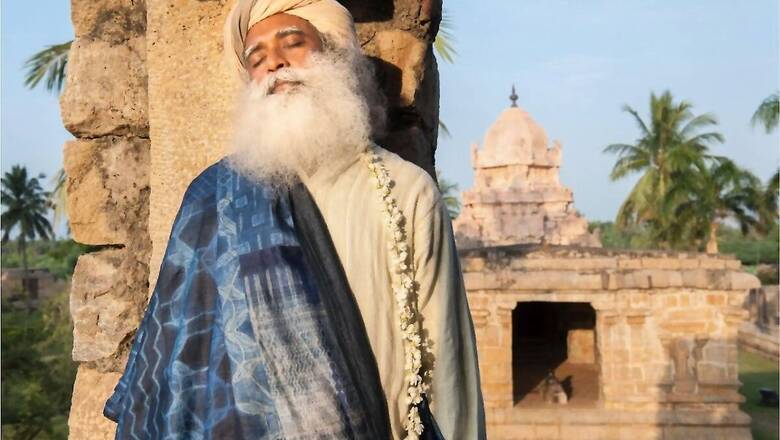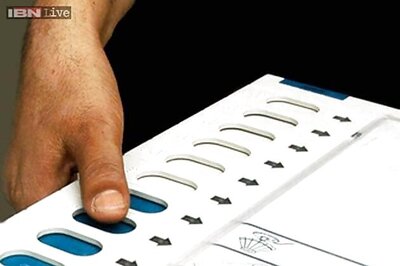
views
The Constitution of India clearly states that every person has the right to administer their own places of worship, whether it is an existing religion or a new religion that one may form. While there is a clause which grants the government permission to restrict and regulate in the event of financial, moral or state security issues, nowhere does it ever state the government can actually administer and govern. However, the Hindu Religious and Charitable Endowments (HR & CE) Act in Tamil Nadu begins on this very premise – to administer and govern temples. Although it is fundamentally against the Constitution, the law has held on and persisted for decades.
Under government control, temples are literally being throttled down. It is not possible to gauge the loss that happened during the British era and during Islamic invasions and rule. But the loss that has happened just in independent India is enormous. Our own governments, elected by us, are suffocating them.
Here are the facts presented by the Tamil Nadu Government to the Madras High Court: 11,999 temples do not have a single pooja or ritual happening; for 34,000 temples, there is only one person to manage everything in the temple from pooja to caretaking to security; in 37,000 temples the annual income is less than Rs. 10,000; 1200 deities have been stolen – we are not talking about artefacts but worship-worthy idols!
Fantastic carvings have been covered with enamel paint and lime wash. Of over 100,000 ancient inscriptions in India, over 60,000 are in Tamil Nadu alone. These have eroded and effaced because of sandblasting in the name of maintenance. This is happening because the lowest bidding contractor is appointed by the government to “renovate” the temple, not someone who is knowledgeable on what basis the temple was built.
The words that UNESCO uses to describe the state of Tamil Nadu temples is “decay” and “massacre.” Temples have been demolished, allowed to collapse and closed down. Then it is declared that they are not restorable. Well, nothing will be restorable if you leave it for a period of time without any maintenance. Above all, they have ensured that slowly, the number of people visiting the temple has seriously diminished.
People Who Don’t Care Should Not Manage Temples
If this has to stop, temples must be in the hands of devotees who care for them, who hold them above their own lives. We are talking about the sanctity of temples. It is very obvious that someone whose heart does not beat for the temples cannot manage them well.
It is not the government’s business in any way to run the spiritual aspects of people’s lives. This is a subjective affair to be conducted by the community. Furthermore, there have been HR & CE officials booked for stealing gold and idols, which were later sold in other countries. A few years ago, an idol was traced to Australia, and they have returned it. Even foreign officials have some feeling for these artefacts, but unfortunately our own officials seem to be apathetic.
In a democratically elected government like India, politicians and bureaucrats will keep changing. Now let us say someone of a different religion comes to power and is put in charge of the HR & CE department.
There is a history of religious conflict in this nation from centuries ago. When external forces invaded the country, certain people believed that these temples should not exist, as it was firmly embedded in their belief system that worshiping so many forms is sacrilege. So they pulled down a whole lot of them.
Now if someone of a different religion comes to power, and they firmly believe that these are all false gods and temples should not exist, how can you expect them to do a great job in managing them?
Fundamentally, we need to understand that whoever comes to power in the government as the prime minister, chief minister, commissioner or any other official cannot be decided by your religion because this is a democratic, secular process. We have no problem as to what religion they practice. Anyone may become an IAS officer and hold a certain post; it is perfectly fine. But a religious or spiritual process cannot be conducted by them.
A Commission for Temple Devolution and External Audit
When the British left in 1947, the temples – as well as so many aspects of the country – were in bad shape. In the process of restructuring, perhaps it was deemed necessary for the state to administer the temples for a period of time. After seventy-four years of independence, it is high time to correct this and hand them back to devotees. The government can set up standards for the community to maintain temples. If someone mismanages a temple, there are existing laws to address these issues. But having the state take over temples on the basis of mismanagement is short-sighted.
Now I keep getting this question from various quarters, “Can the Hindu community be trusted to manage temples properly?” This is coming from an assumption that eighty-seven percent of the population in Tamil Nadu do not have the competence, integrity, or the commitment to manage what is very precious to them – and someone else does. This is ridiculous.
If the word “independence” has to mean something to the majority community of Tamil Nadu, we have to first liberate these temples from government administration. One step the government must take is to set up a commission to decide how the devolution of temples must happen to the citizens. Secondly, it must set up an external audit (paid for by the community), of all the damage to temple properties, the occupation of temple lands, and structures that people have illegally built on the temple premises. We do not wish to demolish these buildings, but whoever is using the land must pay today’s market price for rent or sale. Around half a million acres of land belong to the 44,000 temples in the state. I know of many lands where there is a rent of just five rupees per acre, and even that has not been paid for decades. If the full commercial price for rent or sale is paid, that itself would be enough to revive the temples.
Changing How India’s Democracy Is Run
I am raising this issue of temples now, and many people think that I am turning political. What we need to realize is that in a democratic country, every citizen is political because he or she has a role in electing a government. We may not do politics on a daily basis, but at least one month before election, all of us have to turn political.
This is not a confrontation, agitation or a protest. This is a democratic right that every responsible citizen has that pre-election, we must state what we want. We have forgotten this and then cry after the election. I want to change the narrative of how India’s democracy is run. Right now, the political parties are giving us a manifesto of what they will do. Why are they telling us? Let us have a citizens’ manifesto listing out the things we want.
Till now the whole game has been, “Who will you elect?” “Who” means you will elect someone on the basis of their religion, caste, creed or party. What is important is not who you are but what you will do. Based on what you will do, we will decide who. And whomever people elect, I will bow down to the people’s will and support them because this is my idea of democracy.
Ranked amongst the fifty most influential people in India, Sadhguru is a yogi, mystic, visionary and a New York Times bestselling author Sadhguru has been conferred the Padma Vibhushan by the Government of India in 2017, the highest annual civilian award, accorded for exceptional and distinguished service.
Read all the Latest News, Breaking News and Coronavirus News here




















Comments
0 comment